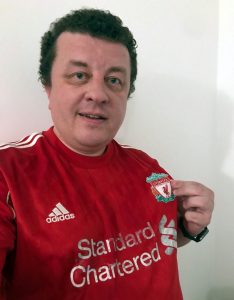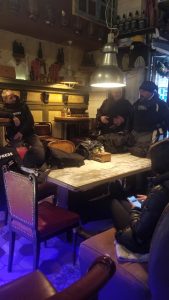22 Jun 2022 | Afghanistan, Africa, Americas, Asia and Pacific, Belarus, China, Europe and Central Asia, European Union, Hungary, India, Kenya, Magazine, Magazine Contents, Philippines, Poland, Russia, Turkey, Ukraine, United Kingdom, United States, Volume 51.02 Summer 2022 Extras
The summer issue of Index magazine concentrated its efforts on the developing situation between Russia and Ukraine and consequential effects around Europe and the world.
We decided to give voice to journalists, artists and dissidents who chose to respond to this ruthless war. At the same time, we didn’t forget other attacks on freedoms that haven’t been covered around the globe as much as they should.[/vc_column_text][vc_custom_heading text=”Up front”][vc_column_text]Joining Ukraine’s battle for freedom, by Jemimah Steinfeld: We must stand with the bold and brave against Putin.
The Index: A global tour of free expression, departing from the poll booth and arriving at the journalists reporting under Taliban rule.[/vc_column_text][vc_custom_heading text=”Features”][vc_column_text]Fifty years of pride and prejudice, by Peter Tatchell: Following the rise and
corporate fall of London’s march for LGBT rights, will grassroots voices rise again?
India’s meaty issue, by Aishwarya Jagani: When a burger comes with a side of oppression.
Cartoon, by Ben Jennings: Art imitates life, caveman style.
My three years of hell in an Uyghur ‘re-education’ camp, by Gulbahar Hatiwaj and Rahima Mahmut: As the world stays silent, hear the truth from inside China’s brutal concentration camps.
One step ahead of the game, by Chen Dan: Media criticism of the Chinese government is all part of the power play.
Welcome to the kingdom of impunity, by Michael Deibert: The landscape is dangerous for journalists in Haiti. Murders and kidnappings are a daily risk.
Politically corrected? By Issa Sikiti da Silva: The banned words the Kenyan
government doesn’t want to hear in this election year.[/vc_column_text][vc_custom_heading text=”Special report: The battle for Ukraine”][vc_column_text]Losing battle for truth in Russian lecture halls, by Ilya Matveev: The war has put a new strain on academic freedom. A Russian lecturer laments his lost classroom.
Don’t be afraid to say two plus two is four, by Mark Frary and Alla Gutnikova: As a convicted student journalist speaks out for freedom, do Russian dissidents once again face the gulag?
Emotional baggage, by Slavenka Drakulic: How it feels to pack up a life in Ukraine and become a refugee.
Back to the future, by Martin Bright: The world has been turned
upside down for Ukrainian reporters, and this is their new landscape.
On not being shot, by John Sweeney: Amidst the Kremlin-wrought
wreckage, do we need a new era of journalism?
Russia’s trojan horse moves closer to Europe, by Viktória Serdult: In Hungary, Putin’s right-hand man and Europe’s right-wing firebrand wins again.
Turkey’s newfound russophilia, by Kaya Genç: Putinism is seeping into Turkey, and it spells trouble for future freedoms.
Divided by age and a tv screen, by Hanna Komar: How do you make sure your
family see the truth when they’re blinded by Kremlin propaganda? A Belarus activist speaks out.
Culture in the cross hairs, by Andrey Kurkov: Decades after Soviet rule, Ukrainian culture is once again under threat, as are the lives behind the creative expression.
Bordering on media control, by Kseniya Tarasevich: False information about
Ukraine finds fertile breeding ground in Poland.
Treat tragedies of the Ukraine war with dignity, by Olesya Khromeychuk: The grieving hearts left behind when death becomes news fodder.
Worth a gamble, by Jemimah Steinfeld: When telling the truth is a crime, turn to a criminal spam operation.[/vc_column_text][vc_custom_heading text=”Comment”][vc_column_text]
Cancel Putin, not culture, by Maria Sorenson: Banning Russian artists assumes
that they are all collaborators of the Russian state and goes against artistic freedoms.
Beware the ‘civilisation’ battle, by Emily Couch: Why Europe must reject
anti-Asian racism to fully stand with Ukraine.
The silent minority, by Ruth Smeeth: A tribute to those whose work never saw the light of day.[/vc_column_text][vc_custom_heading text=”Culture”][vc_column_text]‘The light is no longer the light it used to be’, by Lyuba Yakimchuk: The poet on children being indoctrinated and the elderly disorientated in Russia-occupied Ukraine.
A cassandra worth heeding, by Dominic Cavendish: Murdered Russian journalist
Anna Politkovskaya, whose dispatches from Chechnya should be put in the spotlight.
Poetic injustice, by Stephen Komarnyckyj: History is repeating itself
on the pages penned by Ukrainian writers.
Banking on Russia’s poetic spirit, by Maria Bloshteyn and Yulia Fridman: A “piggy bank” of Russian poetry is fighting on the right side of Putin’s war.
Metaphors and madness, by Eduardo Halfon: In Guatemala, truth is best expressed through fiction.
Metal shows its mettle, by Guilherme Osinski: A heavy metal band labelled
“satanic” by Iran is free from prison and taking back the microphone.
America’s coming crucible, by Jo-Ann Mort: Women in the USA might soon be in the dark about their own bodies.
26 May 2022 | News and features

Andrei’s beloved Liverpool FC has won two trophies this season and will play UEFA Champions League final at the end of May. Has he been able to follow the Reds? We simply don’t know. Credit: Andrei Aliaksandrau
Belarus journalist and human rights defender Andrei Aliaksandrau marks 500 days behind bars in his native Belarus today. The 44-year-old spent several years working with Index on Censorship, as well as coordinating the Civic Solidarity Platform, a coalition of 60 human rights groups. He is a passionate Liverpool FC supporter. He is not only our former colleague, but also our friend.
Arrested along with his girlfriend Iryna Zlobina, another political prisoner of the brutal regime of Alexander Lukashenko, Andrei faces up to 15 years in prison if convicted. The accusation? “Treason to the State”. He was arrested after paying off fines given to journalists and protesters who took to the streets following the fraudulent 2020 presidential election, “won” by Lukashenko.
It’s hard to imagine how Andrei feels about his freedom being deprived in such a cruel and unfair way. How many major worldwide events since January 2021 has he been prevented from following more closely? The Taliban’s return to power in Afghanistan, the migration crisis on the border between Poland and Belarus and the Russian invasion of Ukraine. Surely Andrei would be taking a stand on these matters and collaborating in some way, but that basic right was ruthlessly taken from his hands.
Has Andrei been able to follow the news surrounding his beloved Liverpool FC? The Reds narrowly missed winning the Premier League in the last round of the 2021-2022 season. “You’ll Never Walk Alone,” was chanted in unison by everyone in the Anfield stadium after the match against Wolverhampton. Given the chance, Andrei would undoubtedly have joined in. On 28 May, Liverpool faces Real Madrid in Paris, in the final of the European Champions League. Most likely, televisions in prison (if there are any) will not show the match, and our friend will not see the emotions of the game. Instead, he will have to follow it with his heart. But in fact, he might not even know that his team is playing such an important match.
Andrei was jailed just as the first Covid-19 vaccinations were becoming available. Has he even had his first jab, let alone the two or three that wider society has been offered? If not, his health is at risk in addition to his liberty.
Currently, there are more than 1,000 political prisoners in Belarus, as far as we know. As the days go by, our duty grows to do everything we can to help Andrei, Iryna and all of the others imprisoned merely for exercising their free expression. We must release them from this nightmare. There is an online petition that everyone can sign to demand Andrei and Iryna’s urgent and unconditional release. You can stand with us by signing your name alongside ours.
Sign the petition
6 May 2022 | Hungary, Opinion, Poland, Ruth's blog, United Kingdom, United States

Prime Minister Boris Johnson samples an Isle of Harris gin. Photo: Justin Tallis/PA Wire/PA Images
This week was election week in the UK and, as a former parliamentarian, you’d expect me to be writing about the joy of being able to express ourselves at the ballot box and the vital importance of democratic values when they seem so under attack at the moment in too many places to mention.
I love elections, I love the debate, I love speaking to people on their doorsteps and there is nothing like a successful election count for your party. I cherish the fact that I am lucky enough to live in a democracy, that typically my human rights are protected because my fellow citizens also believe that democracy is something to be protected. But voting is a means to an end – it allows us all to hold our politicians to account and to ensure that our core values are reflected in our government. This only works if you believe that your democratically elected government is going to stick to the rules and it’s that that I have been reflecting on for the last couple of weeks.
There are some conversations that keep coming back to you. That spark debate and lead you to question the status quo. Last month, I had a series of meetings where there was a recurring theme that did just that.
International norms and the rule of law, which underpin both our democratic states and our world order, are only relevant if state actors recognise them and that culturally we all acknowledge their necessity.
The moral authority of democratic countries is dependent on how they choose to apply the rule of law – both domestically and internationally. On whether they are prepared to defend core democratic values, even when inconvenient, on a national and international stage. It’s the application of these norms and rules which empower democratic states to challenge others when they break them. And the recurring message from my meetings was that there was no longer an acceptance that democratic states were prepared to uphold the rule of law – if it didn’t suit them. And therefore, we are losing our moral authority to intervene when others break the law.
Poland is being fined one million euros a day by the European Court of Justice for undermining its domestic judiciary. Rather than comply with the ruling, Poland has been happy to let the fine mount up – a proportion of its EU finding withheld to pay for it.
The European Commission is also cutting funding to Hungary for eroding legal standards in the EU.
The British Prime Minister has been fined for breaching his own Covid-19 regulations and, pre-pandemic, was found to have unlawfully suspended Parliament.
In the US we saw incitement by leading politicians to undermine a smooth transition of power after the last presidential election.
This would be dangerous at any time, but right now when Russia and China are both attempting to leverage their power and influence, invade and threaten their neighbours we have never needed to uphold our international norms more.
The leaders of our democratic nation states speak with a level of moral authority on a global stage because their voice is our voice, because they are seen to uphold our core values – and they can therefore challenge other world leaders when they cross the line. If our current global order is to survive it’s therefore imperative that our leaders uphold the law – whether it suits them or not.
The rule of law is the basis of the campaigns that Index runs. Our work is framed by Article 10 of the European Convention on Human Rights – that everyone has the right to freedom of expression. We demand that national states uphold the values espoused by the Universal Declaration of Human Rights. If our leaders aren’t upholding these values, then it’s not just their voices that are weakened but ours too.
My fear is that when international norms aren’t followed – when our leaders opt in and opt out of laws and norms they don’t like – then repressive regimes thrive and their citizens are the ones that suffer.
So, this is really a plea to all of us who are lucky enough to live in democratic societies – hold your leaders to account and make sure that they comply with the law – so that we all have the moral authority to hold the tyrants’ feet to the fire.
28 Mar 2022 | News and features, Russia, Ukraine

Photo: Reporters inside Kyiv’s Buena Vista Social Bar
There’s always a bar. In Kyiv, in 2022, it’s the Buena Vista Social bar, bang next to a Ukrainian police checkpoint which is both funny ha-ha and funny peculiar because there is a nationwide ban on the sale of alcohol. Sssh. It’s a joyful shebeen, Cuban-themed, run by Maks, and you never quite know what’s available to drink and who’s going to be there. All the women have a past; all the men have no future. You get the vibe.
Early on in the war, a fellow regular was a big bloke with a thick moustache and a mane of bubbly, curly hair, often seen with his fixer, a Ukrainian freelancer. I never spoke to him but I clocked him as someone who had presence, who was an interesting character, who I had probably seen in Sarajevo or somewhere like that. He was Pierre “Zak” Zakrzewski, she Sasha Kuvshynova, and they were both killed on 14 March 2022 when their vehicle came under fire in Bucha – pronounced Butcher – to the northwest of Kyiv. British journalist Ben Hall was wounded in the same attack. They were working for Fox News, something Zak, 55, who had been brought up in Ireland, had mixed feelings about. But he knew the risks of war too well and made a decision that working for a big corporate was better risk-management than being freelance. His co-workers at Fox loved him, giving him an award as “Unsung Hero” after he helped get Afghan freelancers out of Kabul.
Sasha was 24, bold and fiercely smart. After her death, her dad said that she learnt to read at the age of three and picked up English from reading restaurant menus while on family holidays. She was a fanatical photographer with five stills cameras, had founded a music festival for up-and-coming jazz musicians, worked as a DJ and wrote poetry. She wanted to make movies.
If you don’t like free expression in a democracy, you blow up the TV tower. The Kremlin’s first journalist victim was Yevhenii Sakun, 49, a camera operator for Ukraine’s LIVE station, on 1 March. The Russian army sent in four missiles in the evening, killing a worker in the TV tower complex and four civilians. The next morning I saw the people from the morgue take away the bodies of a middle-aged man and a mother and her child with my own eyes.
The most dangerous area of Kyiv is the northwest suburbs, where the Russian army’s offensive, driving down through Chernobyl, has come closest to the capital. Reporters seeking human stories, of refugees fleeing with their dogs on a lead or their cat in a box, went repeatedly to Irpin. Fearing further Russian advance, the Ukrainian army flooded the river plains near the suburb and blew up the most southerly bridge, leaving people to pick their way across the skeleton remains. Once beyond that crossing, there is a second bridge. That’s where US film maker Brent Renaud, 50, originally from Little Rock and formerly of the New York Times, found himself, filming refugees running for their lives. Brent knew what he was doing, having filmed and reported man’s cruelty to man in Iraq, Afghanistan, Libya: all the nice places.
At Irpin, at the second bridge, the Russian army shot him in the neck and he died of his wounds.
Oksana Baulina was one of those intensely brave Russians who were on Team Navalny before their champion was arrested on fake charges and the organisation broken up. Oksana, 43, was declared a “terrorist” by the Kremlin and had to flee Russia. She set up as a reporter and film maker in Poland and reported on the war. When Russian artillery smashed into a shopping centre in Podil, in the northwest of the city, she was killed.
To be honest with you I have done my best to avoid writing this piece for days now because it can only fill one with gloom to think of these brave truth-tellers sent early to their graves by the mobster in the Kremlin. But my pals and I in the Buena Vista are buoyed up the thought that we are in Ukraine exactly because Vladimir Putin does not want us to be here. And on that point, Mr Putin, do fuck off.
And the rum is good.
There is, also, the line from Tom Stoppard’s great play, Night And Day, which I quoted on Twitter while hurrying back from the bar just before – well, actually, just after curfew – had fallen. This, from memory, is how it goes, how the lover of the dead young journalist, played by Diana Rigg, killed on the frontline denounces the false romance of journalism, “it’s not worth the heart-break beauty queen or the crossword and it’s definitely not worth the leader.”
And the old hack, played by John Thaw, replies: “Yes, you’re right. But also the other thing. People do awful things to each other. But it’s worse in places where everybody is kept in the dark. Information is light. Information, in itself, about anything, is light.”
RIP Zak, Sasha, Yevhenii, Brent and Oksana.



